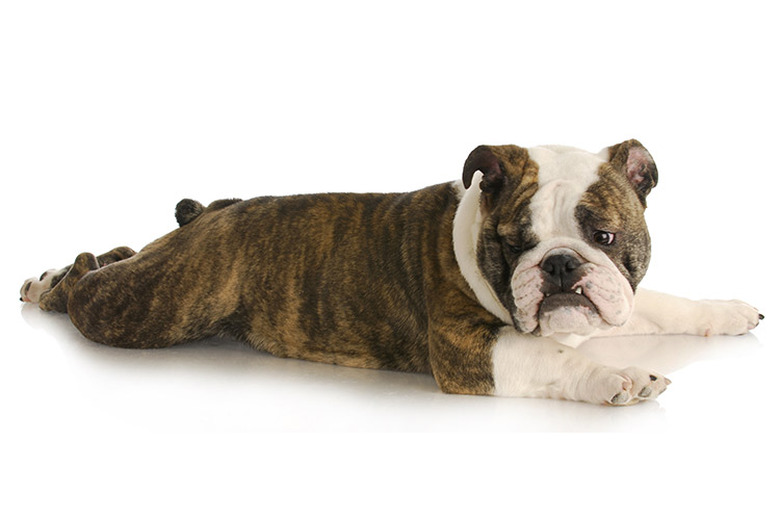Should Dogs Lay With Their Legs Behind Them?
After an exciting day of chasing his tail and begging for treats, your enthusiastic pup has finally laid down for some rest, his eyes closed, head on his paws — and his legs behind him like a furry frog on the carpet. At first glance, it might seem a little weird and possibly cause for alarm, but you can totally save yourself a call to the veterinarian. Unless your dog is in pain, this frog-leg position — what some pet owners lovingly refer to the "sploot" — is perfectly normal.
The Sploot
The Sploot
Many dogs can "sploot" and enjoy resting with their legs extended behind them. Terriers, cocker spaniels, Corgis, and French bulldogs are known for lying in this position, although any dog can take advantage of this resting position and stretch.
Potential Health Benefits
Potential Health Benefits
When dogs lay with their legs behind them, it can actually be quite healthy for you pup; the position is great as it relaxes their hips and legs, and helps them stretch out those muscles. It may even help them cool down and prevent overheating, which is important during hot months.
When to Call Your Vet
When to Call Your Vet
If you do notice that your beloved four-legged friend is bunny-hopping around instead of using his legs in a normal walking or running motion, this may be a sign of hip injury. Look for signs if your pup appears to be in pain when walking or climbing onto the bed or is limping. According to Cornell University's Baker Institute for Animal Health, this may be a symptom of hip dysplasia. In hip dysplasia, the ball joint doesn't fit properly in the large hip socket. Your veterinarian may recommend surgery or careful monitoring, supplements, and pain medication. While any dog may suffer from hip dysplasia, it's usually found in larger breeds, including German shepherds, Labrador retrievers, standard poodles and Rottweilers. If you notice your pet is in pain, you should call your vet and seek treatment immediately.

